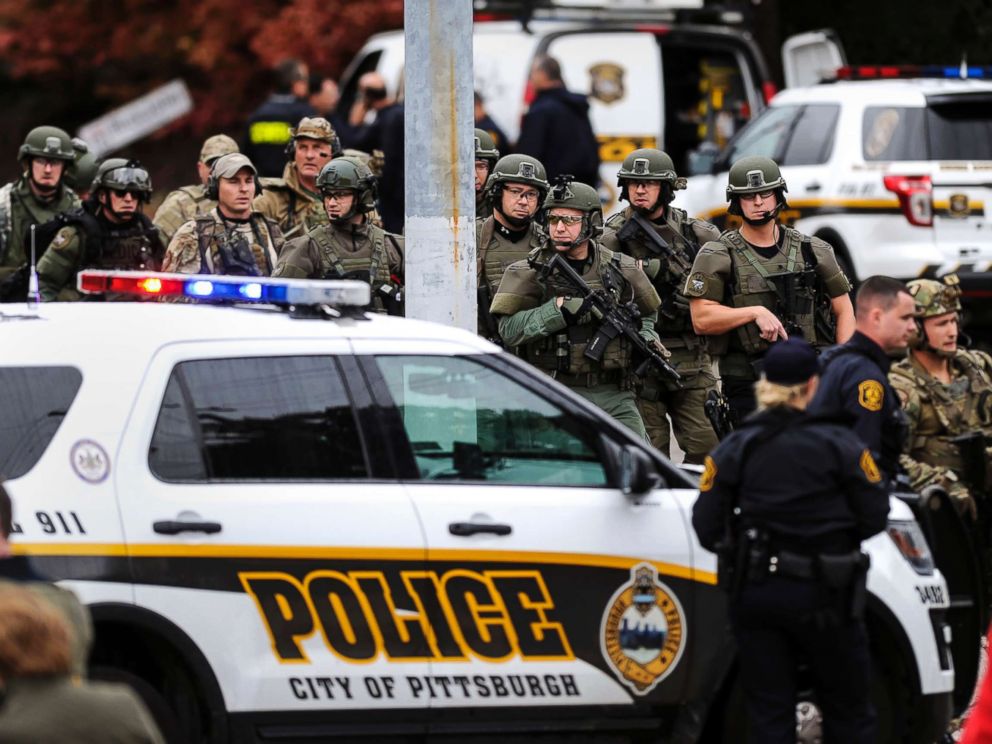We were all stunned this weekend by the events that transpired at the Tree of Life Synagogue in Pittsburgh. Armed with an AR-15 assault rifle and three handguns, Robert D. Bowers opened fire on the temple’s weekly Shabbat service as he shouted anti-Semitic slurs at the congregation. 11 were killed and six wounded by the time Bowers surrendered and the police had him in custody. The event has added fuel to the interminable debate over President Trump’s rhetoric, as many have instinctively pointed to Mr. Trump’s language as the primary agent of this tragedy. I do not believe President Trump’s rhetoric is solely responsible.
The unfortunate reality is that these anti-Semitic sentiments have existed in our country’s roots throughout history. Such hatred is not particular to the United States, but the world as a whole. In the Middle Ages, anti-Semitism was practically a religious matter, as there was a widespread belief that the Hebrews were guilty of killing Jesus. Such events peaked during the Crusades, particularly during the Rhineland massacres in which Jewish communities were wiped out by hordes of German Christians. Countless Jews were subsequently slaughtered and banished from numerous European nations. Over 100,000 Jews were expelled from France, while thousands were banished from Austria in 1421. Hundreds of Jewish communities were equally destroyed in wake of the Black Plague as speculation spread throughout Europe that Jews were contaminating water wells.
Jews were further subject to racist laws in nineteenth century Imperial Russia. Such laws confined Jews to certain areas and barred them from employment in certain professions. Though the Czarist government tolerated their institutions, numerous policies were effectuated to ensure the Jews’ isolation. In 1918, the Old Bolsheviks instituted the Yevsektsiya, a component of the Communist Party designed to destroy Jewish culture throughout the Soviet Union. All Hebrew organizations were disbanded, except for a small number of synagogues that were kept under government surveillance.
Jewish persecution peaked in Nazi Germany under the vicious policies of Adolf Hitler’s regime. Having been made a scapegoat for Germany’s loss in World War I, Jews became subject to a series of repressive policies that once again blocked them from employment and isolated them into ghettos. Such policies reached a pinnacle with the extermination of over 6 million innocent Jews after they were tortured and starved in Nazi death camps.
And just last week, Robert D. Bowers opened fire on a peaceful Jewish congregation in what is being widely considered the most hostile act against the Jewish community in our country’s history.
To attribute the president’s rhetoric as the sole catalyst of this horrific event is naive and short-sighted. I firmly believe that Mr. Trump’s language, in its undeniable nuances of intolerance and racism, has inevitably rejuvenated a white-nationalist, anti-Semitic movement in the United States. However, we must remember how we got here in the first place. The central point that I am trying to convey is that we unfortunately must accept the fact that anti-Semitism is a miserable yet lasting stain on the pages of human history. Such acts of suppression have repeated themselves and will continue to do so if we are not mindful of our past. Now the past is staring us straight in the face.
Sunday, at my fraternity’s weekly chapter meeting, our Historian, Mauricio Bustamante ’20, stood up and shared a powerful interaction from that weekend with a St. Lawrence alumnus. Amidst the sharing of memories he’d experienced throughout his time as a Laurentian, and a member of the Alpha Tau Omega fraternity, the alumnus recalled that Kirk Douglas ’39, arguably St. Lawrence’s most famous graduate, was rejected from joining ATO merely because he was Jewish. Our chapter room fell silent after Mauricio announced this.
Attitudes of anti-Semitism have evidently existed on our campus and will undoubtedly persist in our country unless we do something about it. We must unify and put forth our greatest effort to drown out the bellows of prejudice and bigotry with calls for peace and tolerance. We must remain sensitive to history and recognize its importance and utility in building a better future. Believe in coexistence.



